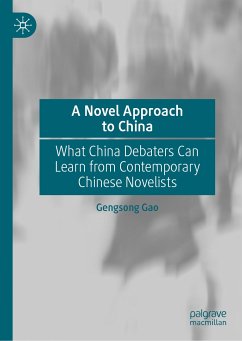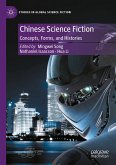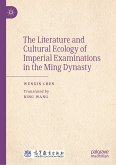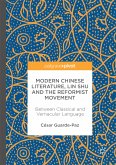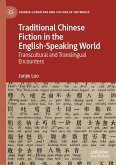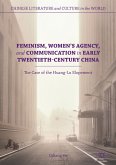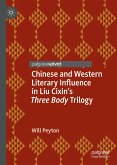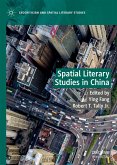Gengsong Gao is Assistant Professor of Chinese Studies at the University of Richmond, where he teaches Chinese language courses and courses concerning modern and contemporary Chinese literature and culture.
This book explores Chinese novelists' distinctive contributions to the China debate in terms of the key issues of Chinese language, power dynamics and Confucian tradition. As China is rising, Chinese scholars and policymakers are debating heatedly over China's past, present and future. Who are the major debaters? How do they analyze China's problems and figure out solutions? What are the main achievements and weaknesses of the Chinese intellectual debate and discourse? Chinese novelists also get involved in the China debate. However, their voices are rarely heard. This book argues that, by dramatizing the diversities of ordinary social actors' everyday languages, active discursive practices and enchanted local traditions, Chinese novelists do not merely illustrate the dominant liberal, the New Left and the New Confucian ideologies, but enrich the China debate and provide a "novel" approach to our understanding of modern China.
"Gengsong Gao's A Novel Approach to China is a highly original, multidimensional contribution to literary studies and Chinese thought, the kind of work that deserves widespread attention. First, he outlines and criticizes theoretical trends in postsocialist Chinese literary studies to show how these theories have blocked out the capacity of Chinese literary texts to articulate political and social issues in ways that the language of political argument has not. Second, he lays out the major positions of the political debates in post-Tiananmen China-liberals, New Confucians, New Left, Maoists, etc. Then he introduces the problematic of the social imaginary, the common background shared by all of a society's discourses, to connectthe analysis of literature to the language politics. Gao's discussion of three contemporary novels by Han Shaogong, Wang Xiaobo, and Chen Zhongshi shows how these texts employ linguistic strategies that break down the ideological grids of the debate, not in order to deconstruct them, but to provide the resources for their enrichment. Readers of this book will not only get a thorough treatment of the relationship of Chinese literary theory to the West but an innovative theoretical problematic that opens a new way for literature to contribute to public debates." -Meili Steele, Distinguished Professor Emeritus, University of South Carolina at Columbia.
Dieser Download kann aus rechtlichen Gründen nur mit Rechnungsadresse in A, B, BG, CY, CZ, D, DK, EW, E, FIN, F, GR, HR, H, IRL, I, LT, L, LR, M, NL, PL, P, R, S, SLO, SK ausgeliefert werden.

